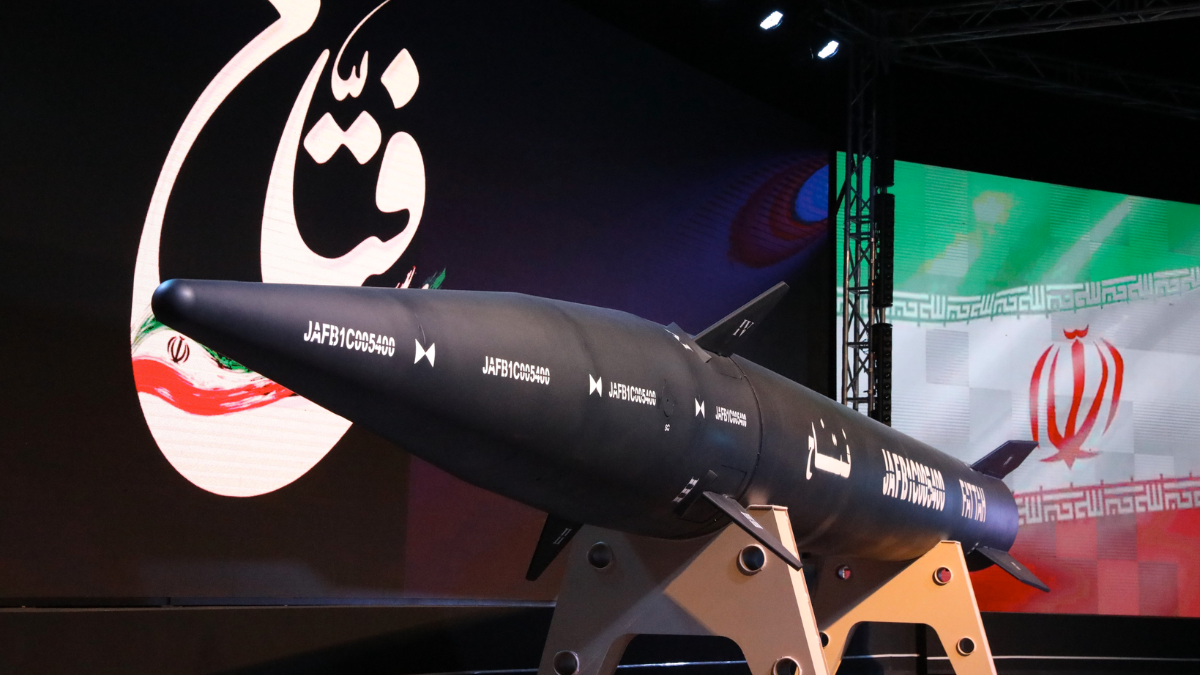This week, a number of billboards across the Iranian capital of Tehran read: “400
seconds to Tel Aviv” in Arabic, Persian and a language rarely seen on such boards in
the country, Hebrew. It’s an announcement of the Fattah, a new addition to Iran’s
fast-expanding arsenal of weapons.
The missile has been named after one of the 99 names of God in Islam meaning
“victory giver”. It was unveiled this week as a remarkable achievement for Iran’s
military, which claims the entity can travel up to 15 times the speed of sound.
Seemingly Revolutionary Capabilities
According to IRCG Aerospace Force Commander Brigadier General Amir Ali Hajizadeh, the hypersonic projectile can penetrate all air defence missile systems and detonate them, the semi-official Tasnim News Agency reported.
Iran’s Islamic Revolutionary Guard Corps’ said the missile can move both above and within the earth’s atmosphere and is capable of covering a distance of 1,400 km (870 miles) – implying Israel is within its range.
“We Have An Even Better Response”
Following the revelation, Israel’s Defence Minister Yoav Gallant swiftly dismissed the potential threat posed to his country. “To any such development, we have an even better response… including both defensive and offensive means,” he said in comments published in Israeli media.
Hypersonic missiles can travel at speeds beyond Mach 5, or five times the speed of sound. While Iran’s recent claims about Fattah haven’t been independently verified yet, experts believe the country maintains tangible progress in missile development.
For Uzi Rubin, founder and former director of the Israel Missile Defence Organisation at the Israeli defence ministry – while the concept is realistic and workable, it’s not necessarily a significant “revolution” in Iran’s missile capabilities.
Iran Now Among A-list Producers?
Moreover, according to Alex Vatanka, director of the Iran Program at the Middle East Institute in Washington, Iran has frequently made exaggerated claims when it comes to developing missiles. But that said, Iran has also made huge advances in the sector, he said.
But has Iran joined the A-list countries producing hypersonic missiles? Alex believes
that is not the case.
Moreover, while Tehran has previously insisted its missile program is just for defensive purposes, Kayhan newspaper reported this week that the Fattah missile also aims “to show its deterrence in economic and political areas.”
Under the pressure of heavy sanctions imposed by the US, Iran regularly accuses Washington of waging an economic war against it.
According to John Krzyzaniak from the Wisconsin Project on Nuclear Arms Control in Washington, Iran has carried out five noteworthy ballistic missile strikes since 2017, including three in Iraq claiming to have targeted Kurdish militants, Israeli intelligence, and US forces.
The other two strikes were made on ISIS in Syria.
Difficult To Intercept
Experts say what makes the new missile different from the others previously designed by Iran is that it is maneuverable – implying it is difficult to intercept as it’s capable of travelling an irregular path.
But it is unlikely to have maneuverability similar to other countries’ hypersonic weapons, some believe. Nevertheless, what does the existence of the Fattah mean for the current missile defence systems in the Middle East?
ALSO READ: Shifting Dynamics: Is the Middle East Moving Away from U.S. Influence?
Israel has a number of different defence systems to address short-range rockets, medium-range projectiles, and longer-range ballistic missiles. It also deploys the US-made Patriot missile defence system, which Krzyzaniak says is potentially capable of shooting down a Fattah missile, but it’s hard to say.
Reports out of Ukraine suggest Patriots have taken care of Russian Kinzhal missiles, which are similar to the Fattah, he added. But even a highly capable defence system can fail to serve its purpose if its radar is facing the wrong direction, or if the missiles are flying too low, he warned.














